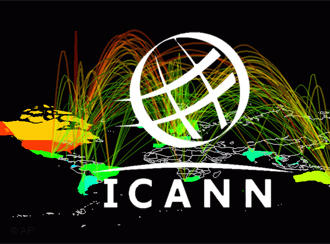There’s quite a bit of buzz in the media about the proposed .xxx domain. Pornographic websites could be registered under this new top-level domain much the same way other websites are registered as .com or .org. Today is the last day for the public to voice their comments.
The theory behind this new domain is that it would make it easier to filter pornographic material en masse. Those who have supported the .xxx initiative have proposed monitoring all sites in this domain for the use of appropriate tags and ensuring none of them make use of spam or spyware or promote child pornography.
 ICANN (Internet Corporation for Assigned Names and Numbers) rejected this idea for the third time in early 2007, with most of the negative votes coming from board members who feared the possibility of ICANN getting wrapped up in the tricky task of Internet content regulation.
ICANN (Internet Corporation for Assigned Names and Numbers) rejected this idea for the third time in early 2007, with most of the negative votes coming from board members who feared the possibility of ICANN getting wrapped up in the tricky task of Internet content regulation.
Ironically both conservative groups and the porn industry have voiced concern about the .xxx domain, but for different reasons. Porn sites fear the existence of an .xxx domain is one step toward the government mandating its use. Conservative groups fear it will expand and legitimize adult content online. Patrick Trueman, former U.S. Department of Justice porn prosecutor, says, “The .XXX domain should be killed and a stake driven through its heart so it never rises again.”
In my opinion, the chief problem with the .xxx domain idea is that it is not mandatory. Pornographic websites do not have to be registered. This means the intended purpose of easier filtering is a moot point.







Exactly. Personal responsibility. Sign me up for that. I’ll pass on letting the government make decisions for my family.
I’m not sold on the idea of a clean internet via ports or a new protocol though. I like the idea of leaving it up to a the private sector, but the ports idea discussed above is really not a lot different than running traffic through a proxy server, which has been found inefficient on larger scales.
Maybe there’s a way to efficiently do it that I’ve not considered. I don’t know. But I am completely confident that the free market on the internet will find a better solution if there is one to be found.
You make a good point on government regulation of radio and TV compared to government regulation of the internet. The answer to your question is that it’s the same principle. Government shouldn’t regulate what stations air on their channels any more than they should regulate what content a web site is allowed to have online.
The obvious argument in favor of government censorship is that if the FCC didn’t regulate TV/radio, there’d be swearing and nudity in prime time. That argument assumes the responsibility of content regulation is the government’s and that it’s not a personal responsibility.
If the government didn’t regulate TV and radio, we’d have in that media what we have on the internet today – a free market with good solutions to give parents control of what enters their home.
@Ron – Perhaps it isn’t the government that needs to do any censoring. You are right. Why is it their place? If, however, there was a private organization that took advantage of the existing structure of the Internet (via ports) and created a “clean” Internet, there would probably many private citizens that would love to have Internet content censored at that level and would take advantage of it.
Good discussion!
Government regulation on the internet is a bad idea. People need to take personal responsibility for what they let into their homes. It’s that simple.
If you regulate a TLD or a protocol or make adult content use an alternate port, you’ll hurt freedom online. What if my definition of “adult” differs from the government’s definition. Swimsuits? Lingerie? Where’s the line, and why does it have to be one line for everybody?
Also, if you create a body to regulate the internet, you have to pay for that regulation, and I’m not a big fan of new/higher taxes.
Get a filter. Keep the government out of it.
@Ron – I agree regulation of the Internet would be difficult, but is there a philosophical difference between government regulation of radio and TV vs. regulation of online media and information? Would government regulation of a single Internet port hinder “freedom online” anymore than regulation of specific TV channels hinder freedom of speech and press? Just curious what you think.
If it were mandatory, it would be a huge help to those who want to avoid porn – for themselves, their kids, or their employees. But how do you force it’s use, and ICANN certainly should not be policing it.
The way to make it work is for law makers to make using the domain a smart business move. We’ve had all manner of age verification systems, and various laws, none of which have worked. Those who do porn sites are worried that some agency will make it difficult or impossible for them to not violate some future law. If setting up a domain on “xxx” with no back doors means you have complied with the law, then the porn sites will flock to it.
Once porn is mostly only found on “xxx”, it becomes far easier to filter it.
Paul
@Paul – Another solution not based on top-level domains is using ports. Most standard web browsing happens in Port 80, or http, but there are thousands of other ports available (ftp, https, dns to name a few). If there was a port designated as the “standard” Internet port, one set aside to be monitored by a regulating agency, much the same way broadcast TV networks have been monitored, then people could use this port knowing it has been regulated. Other ports could then be used by the adult industry (the same way they make use of cable and satellite TV). This maximizes freedom of expression while monitoring sensitive content harmful to minors.
Take a look at this clip from the documentary, Traffic Control, to get a better idea how it works.
It’s a bad idea that would indeed have ICANN regulating content on the Internet – something that should never happen.
Creating laws to regulate content on different TLDs would violate freedom of speech, create an even more regulatory government than we already have, and be unenforceable for content located outside of the country.
And, to get a bit geeky, anyone could setup a web site without a domain (where you just http to the ip address) and completely bypass any authority ICANN would have on the issue. (Yes, http to an ip address isn’t optimal, but it could be done.)